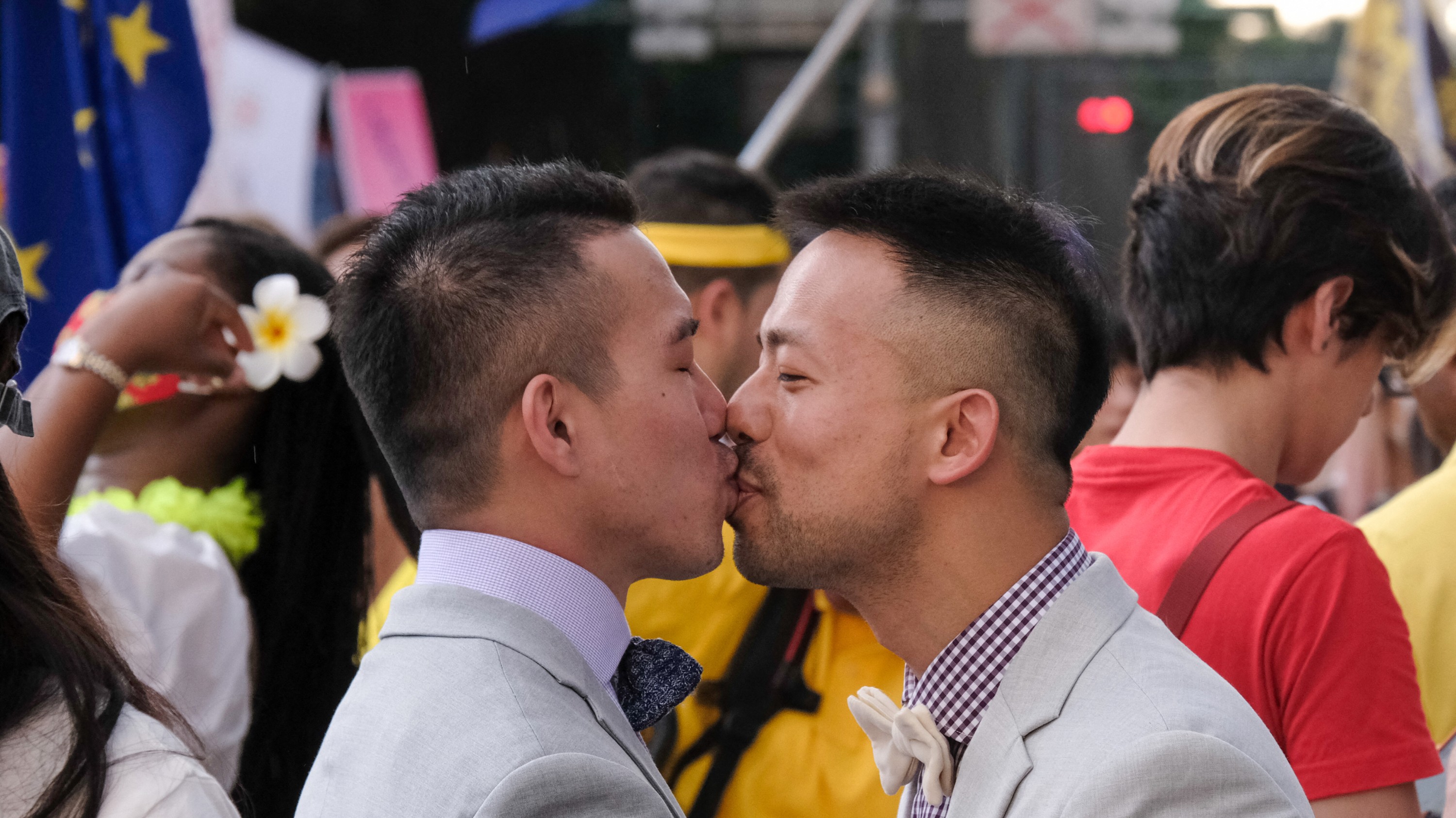When former Japanese fencer Fumino Sugiyama was still a school girl, he didn’t think he’d live to see adulthood.Knowing he was transgender, he couldn’t fathom a future as a woman and had suicidal thoughts throughout his adolescence. He felt out of place when he joined Japan’s national women’s fencing team in 2004, not knowing which part of him he had to sacrifice to make a living. He felt halved, his identities fusing like an illegitimate union. “I thought there was something wrong with me,” he told VICE World News. He only came out after leaving the fencing team in 2006.That was the suffocating reality for many gender minorities in the Japanese sporting world then. But today, 15 years later, Sugiyama said LGBTQ people in the country remain underserved by public policy.That is despite Tokyo 2020 being a landmark game for LGBTQ athletes in many ways. At least 182 publicly out athletes are competing, which is triple the number at the 2016 Rio Games and more than any other Olympics, according to news outlet Outsports. It’s also the first time a transgender athlete was allowed to compete. Openly gay British diver Tom Daley, who didn’t think he’d “ever achieve anything” because of who he was, won his first gold medal. But the same inclusivity that the International Olympic Committee has made a point to promote at the Tokyo Olympics is not seen domestically in the host country, where no athlete competing in the games is publicly out.Japan is the only member of the Group of Seven nations, a club of rich countries, that hasn’t legalized same-sex marriage. It also ranks second to last in gay and transgender rights among the 38 countries in the Organization for Economic Cooperation and Development, an international research and policy organization.Airi Murakami, a Japanese professional rugby player who came out as gay in April, said a fear of backlash and discrimination has prevented athletes from coming out.When Murakami played basketball in high school, she was bullied because of her sexual orientation. Her teammates said they’d quit if she was gay, Murakami recalled in an interview with VICE World News. At home, she was shut out, made to feel like an outsider within her own family. Sugiyama, the former fencer, was only able to come out after leaving the national team. He is now a trans rights activist at Tokyo Pride House, created as a safe space for LGBTQ people to learn and spread awareness about sexual minorities in Japan. “Being a transgender male, I never thought I could continue my career as a professional athlete. If I wanted to be true to myself, which is living as a man, that meant I couldn’t be on the women’s team. I felt forced to choose,” he said. Sugiyama described the mental battle of LGBTQ athletes who want to come out. “If you know you’re a minority in Japan and that your existence is not yet accepted by general society, coming out means you might lose the fans who’ve been supporting you,” he said. For team sports such as rugby, Sugiyama said there was also a fear of endangering teammates’ relationships. “They may not pass the ball to you anymore, or you might not get picked to play on the national team,” he said. Besides Japan’s lacking legal safeguards for LGBTQ people, an absence of vocal role models within Japan’s LGBTQ community makes it harder for individuals to safely come out, Sugiyama said. “In athletics, we’re told stronger people are better. If you’re a minority, you’re seen as weaker, and you start thinking you need to hide that in order to succeed,” he added. But despite the difficulties, LGBTQ activists in Japan recognize progress, no matter how small the steps forward are.  In a landmark decision in March, a Japanese court ruled that denying marriage to same-sex couples was unconstitutional, which is widely seen as a step toward legalization of same-sex marriage.Organizations like Tokyo Pride House also offer support, creating safe spaces when little existed in Japan. Only after a Tokyo Pride House activist contacted Murakami did she feel able to come out publicly to the media. “There’s now more opportunity for us to be in the public sphere, which was unthinkable just a few years ago,” Murakami said. But the challenge ahead is not only to provide better venues for LGBTQ people to gather in Japan, Sugiyama said. He is also working to ensure they’re not “categorized and simplified” into boxes that confirm stereotypes.Most of Sugiyama’s identity documents still say he’s a woman, his at-birth sex. When he went to vote in early July, poll organizers stopped him because he didn’t look stereotypically female. “But there are so many ways of being transgender,” he said. “There are some people who identify as trans, but haven’t undergone surgery. But that’s okay too,” he said. Follow Hanako Montgomery on Twitter and Instagram.
In a landmark decision in March, a Japanese court ruled that denying marriage to same-sex couples was unconstitutional, which is widely seen as a step toward legalization of same-sex marriage.Organizations like Tokyo Pride House also offer support, creating safe spaces when little existed in Japan. Only after a Tokyo Pride House activist contacted Murakami did she feel able to come out publicly to the media. “There’s now more opportunity for us to be in the public sphere, which was unthinkable just a few years ago,” Murakami said. But the challenge ahead is not only to provide better venues for LGBTQ people to gather in Japan, Sugiyama said. He is also working to ensure they’re not “categorized and simplified” into boxes that confirm stereotypes.Most of Sugiyama’s identity documents still say he’s a woman, his at-birth sex. When he went to vote in early July, poll organizers stopped him because he didn’t look stereotypically female. “But there are so many ways of being transgender,” he said. “There are some people who identify as trans, but haven’t undergone surgery. But that’s okay too,” he said. Follow Hanako Montgomery on Twitter and Instagram.
Advertisement
Advertisement
Advertisement

